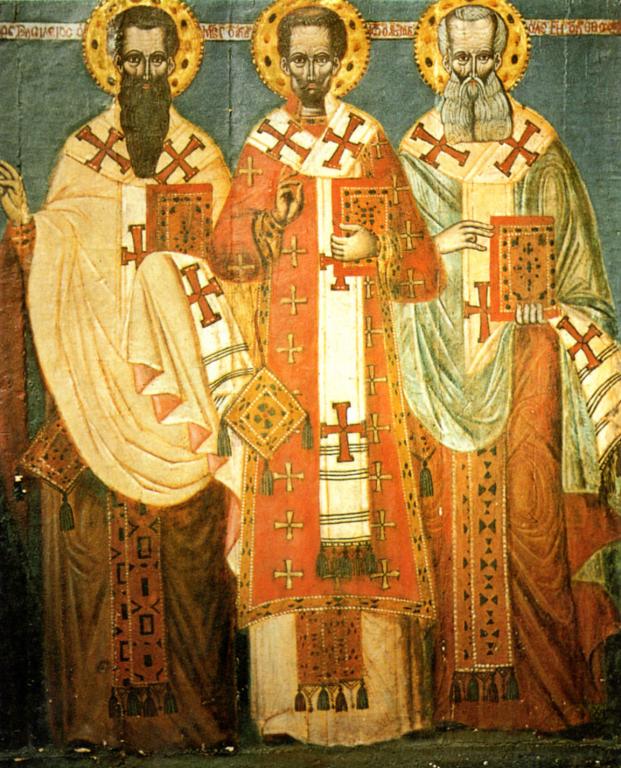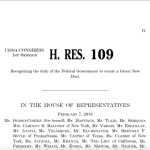
The evangelical preacher John Piper often relates the advice that he received when he attended Fuller Seminary, one of the major educational institutions of the network known as evangelicalism, from a professor incidentally named Dan Fuller (the progeny, of course, of Charles Fuller, the radio evangelist who is the seminary’s true namesake), that one should choose one influential theologian whose thoughts to rethink and follow them through one’s life. Piper chose Jonathan Edwards, though even a cursory reading of Desiring God will reveal an almost equal obsession with C.S. Lewis, and thus was evangelical history written. While Mark Noll was crediting the ‘scandal of the evangelical mind‘ (which is that there isn’t much of one at all) to Edwards being the last great American theologian, Piper set off on rehabilitating the revivalist for whom most Americans only knew to be the guy who depicted God holding a spider over the hot fiery vat of hell and pointing with his finger at his Northampton congregation that they were ‘sinners in the hands of an angry God.’ For Piper, the world reveals the desires of God that demand satisfaction, which means that he feels perfectly justified calling himself a Christian hedonist, someone whose pleasures are fulfilled in the glory of God. On this argument that Piper began developing in the early 1980s as a pastor in Minneapolis (and perhaps earlier in the 1970s as a seminary professor) later was built the empire of New Calvinism, the movement of young evangelical men leading their women (literally) in ravishing erotic contemplation of a God whose deific properties lie in his absolute sovereignty to save and to damn, and more importantly, to determine the gender roles by which a Christian society should be organized.
It is hard for me to believe that Piper and New Calvinism are still relevant in the world of evangelicalism. But there I was, speaking at a local chapter of Asian American InterVarsity a few weeks ago, and when a student asked how to deal with the colonizing legacies of Christianity in the struggle for Asian American agency, I answered that it is imperative that Asian Americans, like most people in general, should allow themselves the capacity to talk about their personal relationship with Jesus Christ in their own terms. I can’t tell you how many Asian Americans still talk about John Piper as if he is the only one who can do theology, I said, and the air went dead. My social justice evangelical feminist friend told me that in the back row, which was populated mostly by men who undoubtedly wanted to overcompensate for their double castration as orientalized subjects in both their secular experience and the evangelical scene, one young man literally checked out and was just done with me. Fortunately, I was done within five minutes too, so it was not as painful as it could have been.
Of course, I knew who John Piper was because I encountered Desiring God as an undergraduate, and in reading it, I felt like I was taught how to feel, set on fire in my heart. But whereas a John Wesley might say that his heart was ‘strangely warmed’ and assume that it was directed to God, an honest assessment of the intensity of my feelings might demonstrate that it was like I was being given permission to work out the complexity of my late adolescent passions in books. The University of Chicago pedagogue Allan Bloom writes in The Closing of the American Mind that teaching the Great Books was like being a midwife because it was like ushering undergraduates to new theoretical life, although I must say that when he recounts how student after student have their eyes light up before uttering as if reaching their first orgasm, oh yes yes, when reading Hegel, I wonder whether midwifery or pederasty is actually the more appropriate analogy. I know that Piper’s critics, which is probably everyone outside that narrow circle of insecure young men who are unable to understand that the mechanism for getting a girlfriend is to ask a woman out and who therefore need Piper to tell something theological about their manhood, would probably wish that I didn’t analogize him to Bloom, but I have to say that it was a bit like Piper, along with his New Calvinist allies, brought me along in this erotic awakening to theological knowledge.
Awakened, I went on a wild goose chase to find the theologian for me. I dabbled in Edwards, even writing some undergraduate term papers on the Bad Book Case and the Farewell Sermon, and I even looked into the homiletics of Martin Luther King, Jr., along with the biography incorporating the FBI reports about his private womanizing. The Seattle preacher Mark Driscoll also gave me some ideas, as he was wont to say at the time that his theology was basically cobbled together from Billy Graham, John Calvin, Martin Luther, and Dietrich Bonhoeffer. I had read Bonhoeffer in high school (my Catholic theology teacher proclaimed me a genius, though he should not have done so given that I understood none of it, but even so, he recommended Rahner for next on my list), but I figured that if I might go back to the source text, at least in The Cost of Discipleship, it was Luther’s formulation simul justus et peccator (this is in the first chapter, a few pages after the first three where evangelicals learn about the difference between cheap grace and costly grace and assume they’ve read the whole book). I thus read Luther, and was led back to Augustine, and strangely enough, the Franciscans too, which is how I ended up reading St Francis of Assisi’s early documents in a coffee shop while pretentiously drinking a vanilla black tea called ‘Franciscan monk.’
I never did nail down the one for me in terms of a theologian whose thoughts to rethink, and of course this shows me how closely the practices of theologizing in this faction of evangelicalism hewed to their fantasies of courtship too, though I think at one point Luther came pretty damn close, and then maybe St Francis, and sometimes I felt guilty about that as I made the tenuous free association that perhaps I liked him because he was San Francisco’s name sake, which is the city where I am supposed to be from, though everyone knows I’m actually from Fremont, who was not a theologian or monastic, but a hero of the Mexican War. But of an even greater source of pain was that around the time that I read Piper’s Desiring God, I also came across in my father’s library the collected works of St John of the Cross, which he had because in the late 1990s and early 2000s, evangelicals who read Richard Foster and Dallas Willard and were thus of the persuasion that ‘spiritual formation’ was the work of the church spoke often of the ‘dark night of the soul,’ though the jury was out on whether they’d actually read any John of the Cross (or Teresa of Avila, whose Interior Castle they liked to claim to have read). In fact, I remember at one evangelical pop psychology summer camp where I was a group leader, we had an event called the dark night of the soul where students were ushered into the forest without a flashlight and had to trust that I, their group leader, would find them and lead them out. It was nice, except that some of them complained that I was not good at guiding them through the uneven terrain of the hiking trail, which I blew off because obviously these were overly privileged Hong Kong city folk in Vancouver whose very concept of the ‘comfort zone’ was being challenged by being outside instead of catching up on the latest television dramas.
In any case, I started reading St John of the Cross to see whether my own erratic prayer life was indicative of this ‘dark night of the soul,’ and I learned from reading the introduction to the collection that The Dark Night of the Soul is actually a sequel, if not an afterthought, to the real text that should be read, which was The Ascent of Mount Carmel. Thinking it would be a quick read, I decided to read Ascent first. It took forever, and I was more than a little frustrated that I wasn’t getting fast enough to what I came for, which was Dark Night, and I could not make heads or tails of the poems that the Carmelite had put in front. One dark night…ah, the sheer grace — ‘oh spare me the sentimentalities,’ said I, with no consciousness that further along in the omnibus was The Spiritual Canticle. Of course, the problem with struggling with reading a book is that you begin to engage it, like how I around the same time also engaged John Piper and still have him stuck in my head now as an Eastern Catholic (in fact, I had a dream about him shortly after my conversion where he accused me of betraying him and bearing false witness, but that kind of psychoanalytic self-indulgence will have to be saved for an entirely post from this one), and as St John of the Cross was unfolding the spiritual dimensions of the seven deadly sins (which I as a Protestant knew nothing about, except that my Catholic friends always seemed to be interested in a numbered itemized list of everything spiritual — three cardinal virtues, seven acts of this kind of mercy, seven of the other kind, seven sorrows, and so on), he started talking about gluttony. One dimension of gluttony, he said, was reading too many spiritual books so that one is engorged with theological knowledge without being able to digest it. I slammed the book shut. I was of course guilty as charged but definitely thought the charge was excessively anti-intellectual. I did not realize that St John of the Cross was not an evangelical. His name was of the Cross.
I recount all of this saga today because as I deal with my evangelical past and my co-existence with evangelicals, I learn that today, of all days, in this pre-Great Fast time of preparation, is the Feast of the Three Holy Hierarchs: Basil the Great, John Chrysostom, and Gregory the Theologian. The story behind this feast is that once upon a time in Constantinople, people used to take sides as to which of these great bishops they followed, and then one day, the three of them appeared in a vision to someone in the city and said that they were really all friends. No one of them is greater than the other; all of them are in the same economy of knowledge, and thus was born the Feast of the Three Holy Hierarchs, the day that we celebrate that you don’t have to pick one theologian whose thoughts to rethink because their contributions are common to the house of God and what matters is dwelling in this ecclesial home of ours.
I realize now that John of the Cross, who was not one of the three holy hierarchs but who has part of my mystagogical journey in coming to this day, is more right than I thought he was. What had been stirred in my heart as a single and insecure young Asian American Christian man was certainly a passion, and even one for theology, but it was an inflamed form of the passions to engorge myself in knowledge. Perhaps Dan Fuller’s advice to pick one theologian and stick with them was one way to get a handle on this passion of being all over the place theologically, but not even John Piper could do it — is he really an Edwards guy, or is he a C.S. Lewis fanatic? — and certainly not Mark Driscoll who claimed all the Protestant theologians as his own. But the problem is the passions themselves, and as much as the Puritan theologian John Owen claimed that only passion can drive out passion, this overheated fire that burns for the gluttony of knowledge can burn houses down. The Three Holy Hierarchs, themselves no strangers to either the passions or the proper place of the fire of the Holy Spirit, offer another path, then, which is to consider that this desire to know of the deep things of the world and the divinity by whose being it is constituted is situated in an economia of knowledge in which one participates at table, in liturgy, and in common life. Theology in this sense is not done by books, which are only the attempts to articulate the reflection on our mystical life together and thus are not banking sources of knowledge but points of conversation to be discussed, but by the actual partaking in the divine life by which actual mystical learning – mystagogy – happens. I suppose what I am saying is that I stand by what I said to the Asian American evangelicals that night when I made fun of how they seemed to let John Piper do their theology for them. If Asian American Christians do not want to practice a colonized form of theology, then the path forward is mystagogy in this economia that is ours together, in which all things are ours and ours is Christ’s, and the pastoral omophoria of the Three Holy Hierarchs shepherds us to the fulfillment of desire that is met by the One who is truly Being and in whom we live and move and have our being.
















